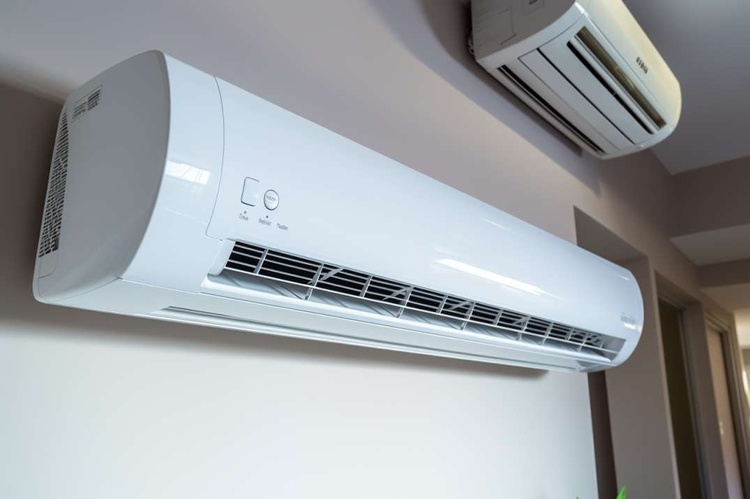Ductless Air Conditioning: A Modern Cooling Solution for Your Home
Ductless air conditioning systems have gained popularity in recent years as an efficient and flexible cooling solution for homes and businesses. These innovative appliances offer a range of benefits over traditional central air conditioning systems, making them an attractive option for many property owners. In this article, we'll explore the features, advantages, and considerations of ductless air conditioning to help you determine if it's the right choice for your cooling needs.

How does ductless air conditioning work?
Ductless air conditioning systems operate on the same principles as traditional air conditioners but with a more streamlined approach. The outdoor compressor unit contains the refrigerant, compressor, and condenser coil. It pumps refrigerant through small conduits to the indoor air handling units, which house the evaporator coils and blowers. As warm indoor air passes over the evaporator coils, the refrigerant absorbs heat, cooling the air before it’s circulated back into the room. This process continues until the desired temperature is reached, providing efficient and targeted cooling.
What are the benefits of ductless air conditioning?
Ductless air conditioning systems offer several advantages over traditional central air conditioning:
-
Energy efficiency: By eliminating ductwork, ductless systems avoid the energy losses associated with leaky ducts, potentially reducing energy consumption by up to 30%.
-
Zoned cooling: Each indoor unit can be controlled independently, allowing for customized temperature settings in different rooms or areas of your home.
-
Improved air quality: Without ductwork to collect dust, debris, and allergens, ductless systems can help maintain better indoor air quality.
-
Quiet operation: Indoor air handling units are designed to operate quietly, providing a more peaceful living environment.
-
Easy installation: Ductless systems require minimal structural modifications, making them ideal for older homes, additions, or spaces where installing ductwork would be impractical.
Are there any drawbacks to ductless air conditioning?
While ductless air conditioning systems offer numerous benefits, there are a few potential drawbacks to consider:
-
Higher upfront costs: The initial installation cost of a ductless system can be higher than that of a traditional central air conditioning system, especially for larger homes requiring multiple indoor units.
-
Aesthetic considerations: Some homeowners may find the appearance of indoor air handling units less appealing than hidden vents used in central air systems.
-
Regular maintenance: While all HVAC systems require maintenance, ductless systems may need more frequent filter cleaning and professional servicing to ensure optimal performance.
-
Limited heating capacity: Although many ductless systems offer heat pump functionality for year-round climate control, they may struggle to provide adequate heating in extremely cold climates.
How does ductless air conditioning compare to portable air conditioners?
Ductless air conditioning systems and portable air conditioners are both alternatives to central air conditioning, but they differ significantly in terms of performance, efficiency, and installation:
| Feature | Ductless Air Conditioning | Portable Air Conditioner |
|---|---|---|
| Cooling Capacity | Higher (9,000-36,000 BTU) | Lower (5,000-14,000 BTU) |
| Energy Efficiency | More efficient | Less efficient |
| Installation | Professional installation required | DIY installation possible |
| Noise Level | Quieter operation | Louder operation |
| Aesthetics | Wall-mounted units | Floor unit with exhaust hose |
| Portability | Fixed installation | Can be moved between rooms |
| Cost | Higher upfront cost, lower operating cost | Lower upfront cost, higher operating cost |
Prices, rates, or cost estimates mentioned in this article are based on the latest available information but may change over time. Independent research is advised before making financial decisions.
Is ductless air conditioning right for your home?
Determining whether ductless air conditioning is the best choice for your home depends on several factors, including your existing HVAC setup, home layout, cooling needs, and budget. Ductless systems are particularly well-suited for:
-
Homes without existing ductwork
-
Room additions or renovations
-
Supplementing inadequate central air systems
-
Creating temperature zones in large or multi-story homes
-
Improving energy efficiency in older buildings
To make an informed decision, consider consulting with a professional HVAC technician who can assess your specific needs and provide personalized recommendations.
In conclusion, ductless air conditioning systems offer a versatile and efficient cooling solution for many homeowners. By understanding the benefits, drawbacks, and applications of this technology, you can make an informed decision about whether a ductless system is the right choice for your cooling needs.






